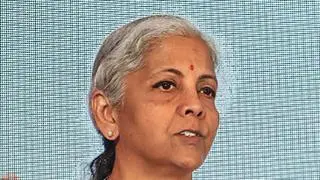Normal life across the country on Friday was affected by the countrywide one-day strike called by Central trade unions, in which an estimated 18 crore workers in the road transport, banking and coal mining sectors participated.
“This was the biggest-ever strike by the working class of the country… Workers actively participated in the strike despite the use of state repression, including the use of police force in some States,” said a statement from the Centre of Indian Trade Unions.
The strike had been called to seek government action on a 12-point charter of demands, including measures to contain price rise and unemployment, enforcement of labour laws, universal social security and minimum wages of ₹18,000 per month
Labour Ministry officials, however, said the strike was only partially successful and did not have much of an impact.
“Important sectors like the Railways, civil aviation and major ports remained unaffected. Banking and insurance, coal, telecom and defence production were partially affected, while transport and steel were marginally affected,” a Labour Ministry release claimed.
While Kerala and Tripura were most affected by the strike, the Ministry said it partially impacted Odisha, Jharkhand, Madhya Pradesh, Telangana, Karnataka and Chhattisgarh. In other States, the impact of the strike was negligible, it added.
“PSUs under the Ministry of Steel succeeded in ensuring that their employees are not distracted and prevented from coming to work on the day of All India General Strike,” said the Ministry of Steel in a statement. Steel Authority of India Ltd, which has over 80,000 employees, registered overall attendance of 94 per cent. The strike was largely peaceful, although the CITU said the police used force in West Bengal, Haryana, Uttar Pradesh and Assam.
Some striking workers are understood to have been detained in the industrial belt of Manesar and Gurgaon. The Delhi government invoked the Essential Services Maintenance Act and declared the nurses’ strike illegal.
Banking services disruptedBanking services were badly affected, with employees and officers of all public sector banks, barring the State Bank of India, joining in. “There was also participation from the Reserve Bank of India, old-generation private sector banks and employees of foreign banks,” said CH Venkatachalam, General Secretary of the All India Bank Employees Association.
According to Venkatachalam, 26 lakh cheques accounting for ₹19,000 crore were not cleared due to the strike. Industry chamber Assocham pegged the loss to the economy due to the strike at about ₹16,000-18,000 crore. “Trade, transport, key manufacturing facilities and banking services in Kerala, Karnataka, Tripura, Haryana and Uttar Pradesh were affected,” it said.
Workers affiliated to 10 Central unions, including the Indian National Trade Union Congress, the Hind Mazdoor Sabha, CITU, SEWA and the All India Trade Union Congress participated in the strike. The RSS-affiliated Bharatiya Mazdoor Sangh did not participate.







Comments
Comments have to be in English, and in full sentences. They cannot be abusive or personal. Please abide by our community guidelines for posting your comments.
We have migrated to a new commenting platform. If you are already a registered user of TheHindu Businessline and logged in, you may continue to engage with our articles. If you do not have an account please register and login to post comments. Users can access their older comments by logging into their accounts on Vuukle.